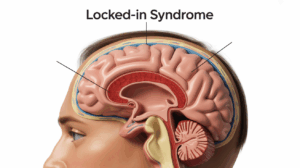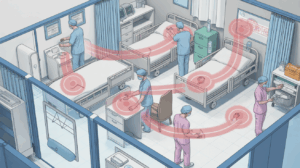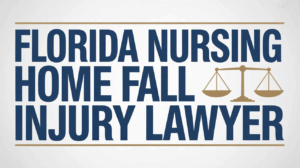
Pediatric medical malpractice happens when a healthcare provider fails to meet the accepted standard of care for children, leading to harm that could have been prevented. Recognizing the signs that pediatric medical malpractice happened is the first step toward getting justice for your child.
If you believe your child suffered harm due to a doctor’s negligence, you need legal representation. A Fort Lauderdale medical malpractice lawyer from Anidjar & Levine can help you gather evidence, build a strong claim, and secure the compensation your family deserves.
What Does Pediatric Medical Malpractice Mean?
Pediatric medical malpractice occurs when a doctor, nurse, or other healthcare professional treating a child fails to provide the level of care that a reasonably skilled provider would have under similar circumstances. These cases can happen in hospitals, emergency rooms, clinics, or even during routine office visits.
At its core, malpractice in pediatric care is about preventable harm. The question is whether the provider’s mistake directly caused the injury or condition your child experienced.
Common Types of Pediatric Medical Malpractice
Several types of medical mistakes can qualify as pediatric medical malpractice, including:
- Birth injuries: When a baby suffers brain damage, nerve injury, or oxygen deprivation during delivery, it may point to negligence during labor or delivery management.
- Failure to diagnose or delayed diagnosis: Missing signs of serious illnesses like meningitis, pneumonia, or congenital heart defects can allow conditions to worsen unnecessarily.
- Medication errors: Children are especially vulnerable to dosing mistakes because their medication needs differ greatly from those of adults. Giving the wrong drug or an incorrect amount can cause toxicity or ineffective treatment.
- Surgical mistakes: A wrong-site operation, an instrument left inside the body, or damage to internal organs during surgery can cause serious harm.
- Improper follow-up care: When doctors fail to monitor symptoms or order necessary tests after treatment, a child’s condition can deteriorate.
- Negligent emergency care: Delays in providing treatment in a pediatric ER, especially for trauma or infection, can lead to severe complications.
Signs That Pediatric Medical Malpractice Happened
Recognizing malpractice isn’t always easy. Doctors may assure parents that complications were unavoidable, but certain red flags often suggest otherwise. Those red flags include:
- Unexpected worsening after treatment: If your child’s condition becomes significantly worse immediately following a medical procedure or diagnosis, it could indicate that a mistake occurred during their care.
- Inconsistent or changing explanations: When healthcare providers offer conflicting reasons for an injury, or their explanations shift over time, it may suggest they’re avoiding the truth.
- Missed or delayed diagnosis: If another physician later identifies a condition that should have been caught earlier, it may be evidence that the original provider failed to meet the standard of care.
- Injury not consistent with the procedure: When a child develops symptoms or injuries that have no clear connection to the treatment performed, negligence might be involved.
- Failure to act on test results: If lab results, scans, or vital signs showed warning signs but no action was taken, this could be a sign of malpractice.
- Hospital or staff admission of error: Any acknowledgment (verbal or written) that “something went wrong” should never be ignored.
As a parent, you should trust your instincts. If something about a provider’s conduct or your child’s outcome feels off, it often warrants a closer look.
How Pediatric Malpractice Differs from Adult Malpractice
Children are not small adults. Their bodies and medical needs are different, which makes pediatric malpractice distinct in several ways, including:
- Smaller treatment margin for error: Pediatric patients are more sensitive to medications, procedures, and anesthesia. A small mistake in dosage or timing can have major effects.
- Rapid progression of illness: Children’s conditions can deteriorate much faster than adults’, meaning delayed care can have more severe outcomes.
- Nonverbal or limited communication: Infants and young children can’t describe their symptoms, so providers must rely on observation and tests. Failure to recognize warning signs can easily lead to missed diagnoses.
- Lifelong consequences: An error made early in life can affect development, mobility, and cognitive ability for decades.
Steps to Take If You Suspect Pediatric Medical Malpractice
If you believe your child was harmed by medical negligence, you need to take these steps:
- Document everything: Keep medical records, discharge notes, prescriptions, and any written communication from providers.
- Write down what happened: Record a timeline of all appointments, treatments, symptoms, and conversations with medical staff.
- Seek a second medical opinion: Another pediatric specialist can review your case and help determine whether the care your child received fell below acceptable standards.
- Avoid signing documents under pressure: Hospitals and insurers often ask parents to sign releases or settlements before they understand what happened. Never sign anything without legal advice.
- Contact an attorney: A lawyer experienced in these cases can review your records, consult medical experts, and determine if you have a valid claim.
Types of Compensation That May Be Available
When malpractice is proven, families may be entitled to financial recovery for the harm caused. Types of available compensation may include:
- Medical expenses: You can recover the costs of hospital bills, medications, surgeries, and ongoing medical treatment.
- Rehabilitation and therapy: Physical, occupational, or speech therapy often becomes necessary after serious injury. If this is the case for your child, you can be compensated for it.
- Future medical care: Many children will require lifelong monitoring, equipment, or specialized treatment. If your child does, you can receive additional compensation.
- Pain and suffering: You can be compensated for the physical and emotional toll of the malpractice on both your child and your family.
- Loss of future earning potential: If your child’s injuries impact their ability to work as an adult, future income losses may be included in your claim.
Get Help from a Medical Malpractice Lawyer
If your child’s condition worsens unexpectedly, if explanations from staff don’t add up, or if another doctor points out errors in care, these are strong indicators that malpractice may have occurred.
A medical malpractice attorney from Anidjar & Levine can help you build a strong claim and pursue compensation for the harm your child suffered. Schedule a free consultation to discuss your legal options today.










